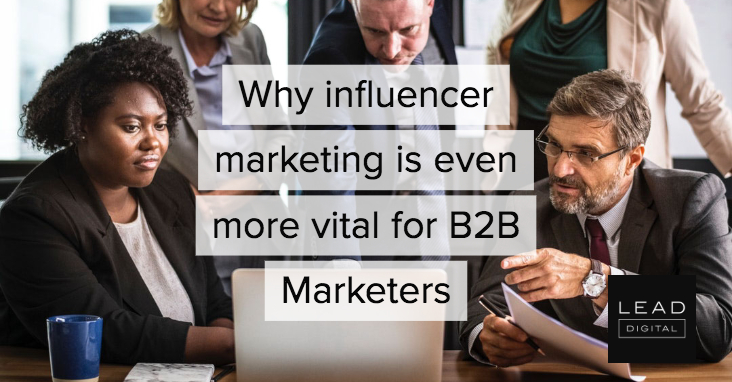
Social media influencers have become a centerpiece of business-to-consumer (B2C) marketing strategies, but as its popularity grows, business-to-business (B2B) brands are starting to follow suit.
A recent study found that 75% of marketers are utilizing influencer marketing, 43% of whom plan to increase their spending in the next year. Of those who are yet to engage with influencers, 27% intend to do so in the next year. At the same time, however, a 2017 survey found that only 15% of B2B companies are running influencer marketing programs.
In spite of this significant imbalance, B2B marketers are increasingly looking to incorporate influencers into their strategies. Before they can successfully do so, however, they first must understand how the purpose, approach, and ultimate outcome of influencer marketing is unique to their domain.
Influencer marketing for consumer products typically requires marketers to identify social media users with large audiences that align with their target market and engage them in an advertising campaign using an influencer marketing platform. Marketers then work with influencers to explore unique and engaging ways to showcase the brand to that audience.
B2B influencer marketing, however, isn’t as straightforward. After all, you can’t ask an influencer to take a selfie with your SaaS platform and post it to Instagram, or give away a free vacation to your data center on Facebook. Even if you did, it’s likely that you’ve got more than one decision-maker to win over, and they probably aren’t going to click on a link to a product they see for the first time on social media and make a purchase right then and there. – Read More



